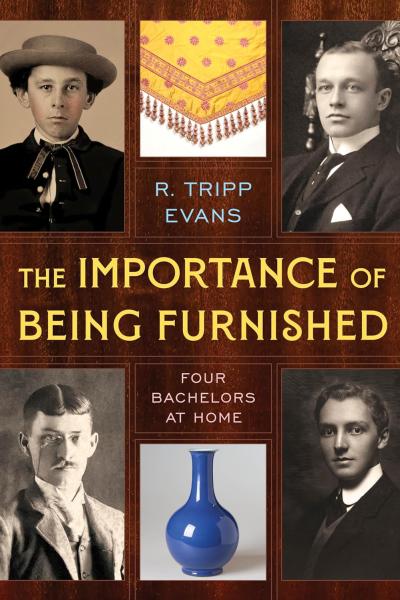
Matthew Kennedy, host and curator of the CinemaLit film series at MI, grew up watching old movies with his mom and performing in musicals at his high school in Redding. He went on to dance professionally and teach anthropology and film history at City College of San Francisco for 23 years. The recipient of a Fulbright research fellowship and a San Francisco Cable Car Media/Journalism Award for film criticism, he has published three biographies of classic Hollywood as well as Roadshow!, a history of the decline of big-screen musicals.
This week, Mechanics’ Institute chatted with Kennedy by phone about movies, modern dance, and the awe-inspiring apricot tree in his backyard.
--------------------------------------------------------
Besides CinemaLit, what are you up to now?
In retirement, I’m discovering non-film things! My partner and I are very much into gardening—we have six raised beds and we’re learning how to be urban farmers. We have peaches, apricots, figs, lettuce, lots of tomatoes… It’s unexpected, the pleasure I get from it. I always thought I’m someone only interested in art and music and books, but I love getting my hands dirty.
Speaking of books, are you working on something new?
I’m writing for Bright Lights Film Journal and the Bay Area Reporter. My eyes are open to book number five constantly, but there isn’t a clear path yet.
Early on in adult life, you were a performing artist. Can you say more about that?
At UCLA I majored in theater, and discovered that my favorite thing to do was dance. I was too old to consider a career in classical ballet, so I went into modern dance. I performed in San Francisco in the ’80s with Margaret Jenkins and then went to New York and studied with Merce Cunningham.
And then what happened?
Shin splints. Also, the starving-artist routine got old. I started thinking, ‘You know, I’d really like a steady paycheck, I’d really like health insurance—I think I’m having bourgeois envy.’ And then a lot of other stuff happened, including graduate school in anthropology. I didn’t dance for literally several decades.
But I am dancing now! I’m taking Modern Dance for the Returning Dancer, taught by [MI member] Virginia Matthews, who I danced with 35 years ago. It’s this fantastic physical homecoming. Rather than being depressed about what I can’t do, it’s exciting what I can still do.
Is there a connection between your passion for modern dance and your work as a film historian?
Not a really coherent one. My love of film predated theater or dance. My mom was a great film fan and we would watch oldies on TV together. She would educate me. She’d say, ‘Oh, you know, that’s Irene Dunne, and she played these wonderful, dignified visions of womanhood.’ ‘Oh, that’s Humphrey Bogart; he excelled at tough guy roles.’ I just sort of absorbed this. And at some point after dance, I realized I’d collected a lot of knowledge about American movies. And I started writing reviews. And that led to books.
So what’s coming up next for CinemaLit, after the current series on the British New Wave?
We're talking about a month of screen romances, funny, sad, and in-between. Post-sheltering, I’d like to do a month on musicals, some of the wonderful, non-standard ones, like Love Me Tonight with Maurice Chevalier and Jeanette MacDonald, and The Bandwagon, a Fred Astaire showcase. We’ve talked about a tribute to character actors of the studio era, like Beulah Bondi, Agnes Moorehead, Claude Raines—wonderful actors who were never headliners. Our current [film subscription] catalog is strong with foreign language films, so shoot, let’s take advantage of that, have some Kurosawa and Truffaut. When we get back to non-sheltering, we’ll also continue the Pre-Code Barbara Stanwyck month we started in March.
What’s different about hosting film series at MI, as compared to other venues?
The CinemaLit crowd is absolutely amazing. So many people have so many perceptive things to say. I come up with something to launch the discussion, and then really it takes care of itself. With an older audience, they bring this knowledge and life experience. ‘I lived through this history,’ or ‘I saw this 30 years ago.’ But there’s also a sense of discovery. We’re all still capable of that, too.
Are there films that speak to the situation we have now with the pandemic?
I watch about five movies a week, and sometimes there will be a line of dialogue that reminds me of what we’re experiencing. Recently, I watched just a few minutes of Stella Dallas with Barbara Stanwyck. Somebody asked her a question and her response was, ‘Oh no, I haven’t been out of the house for two months.’ A casual line in a different context, from the Depression, suddenly jumped out because it’s 2020.
Anything else that you would like people reading this interview to know?
The other day I walked up to our apricot tree, which has lots of new branches, new leaves, new baby apricots for the first time. With the branches surrounding me, I stood right up against the trunk and meditated. I’m not a parent but I had paternal feelings. ‘I grew you from a stick and now you are making fruit.’ The kind of feeling that is particularly valued now as an antidote to all the challenges we face. New life, the renewal of spring. The pandemic was not affecting this beautiful young tree in this slightest.
--------------------------------------------------------
Currently conducted on Zoom, CinemaLit takes place at 6 p.m. on Friday evenings. For more information, or to register for an upcoming discussion, click here.



